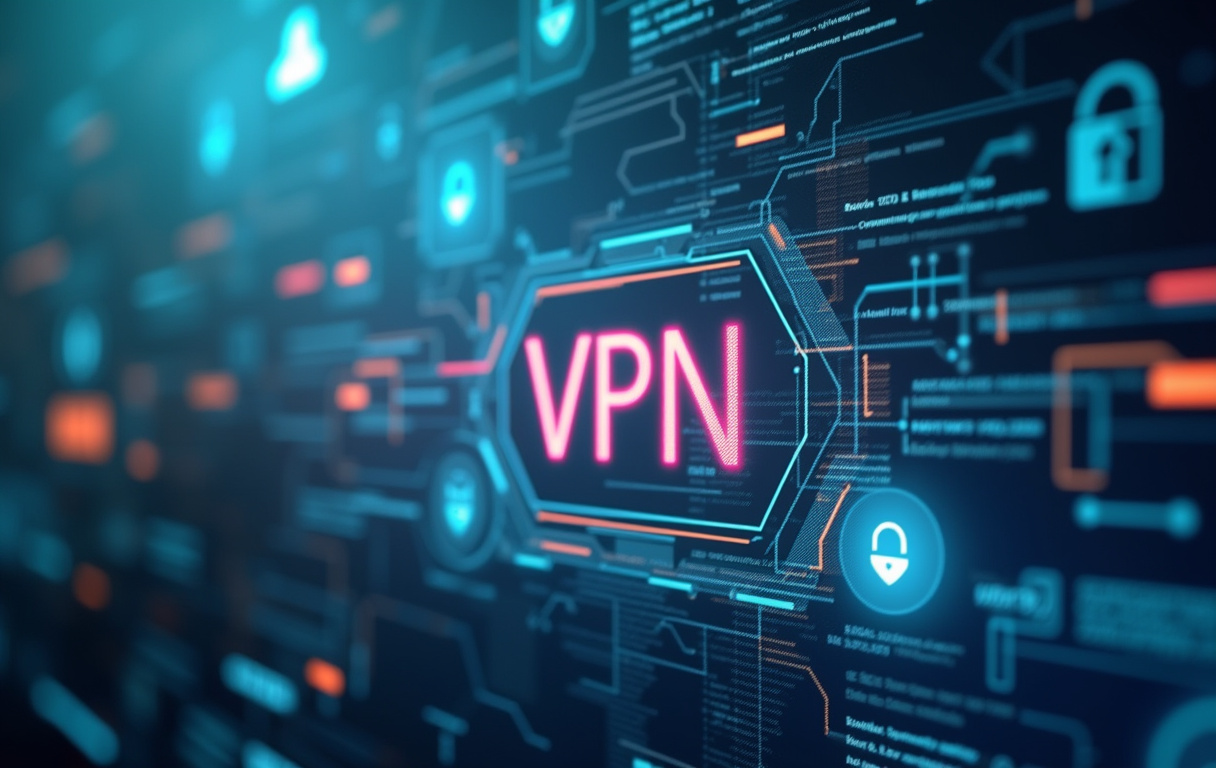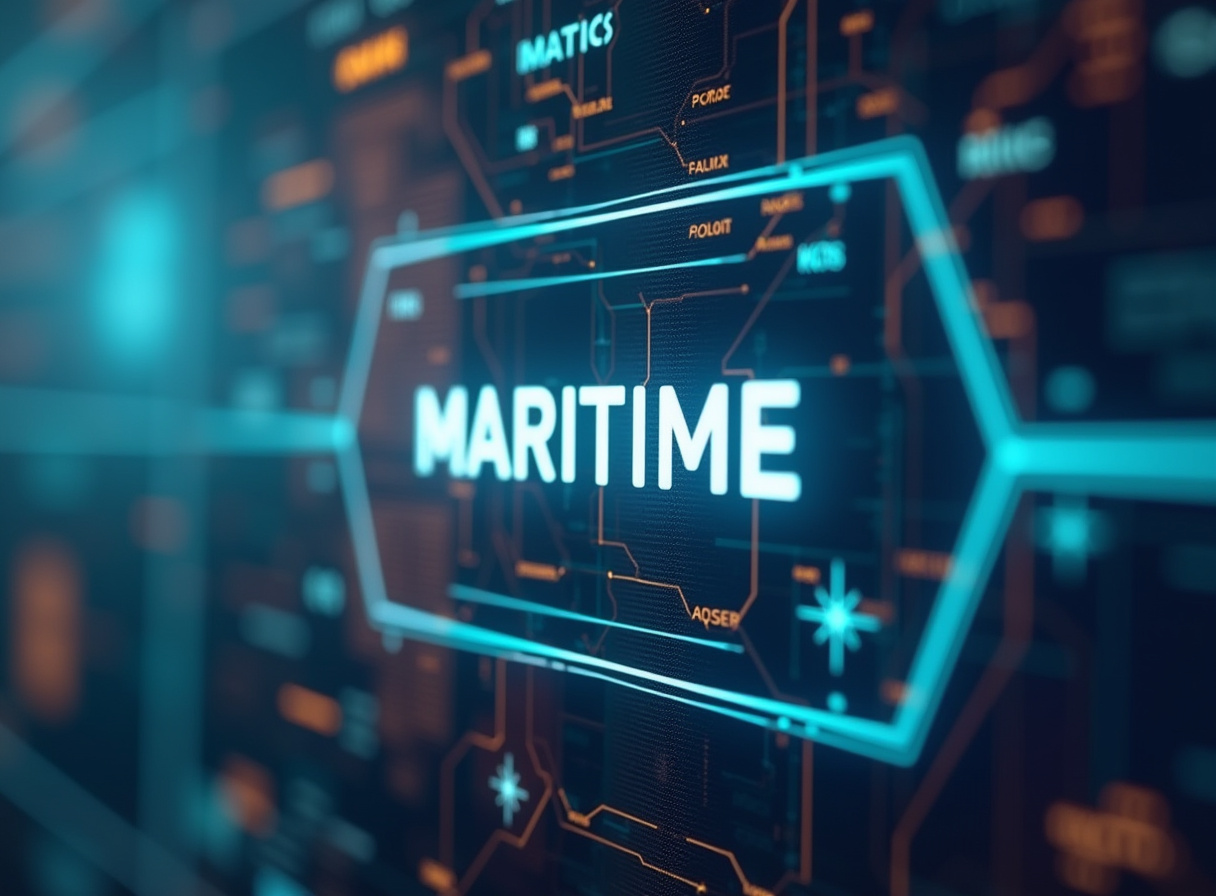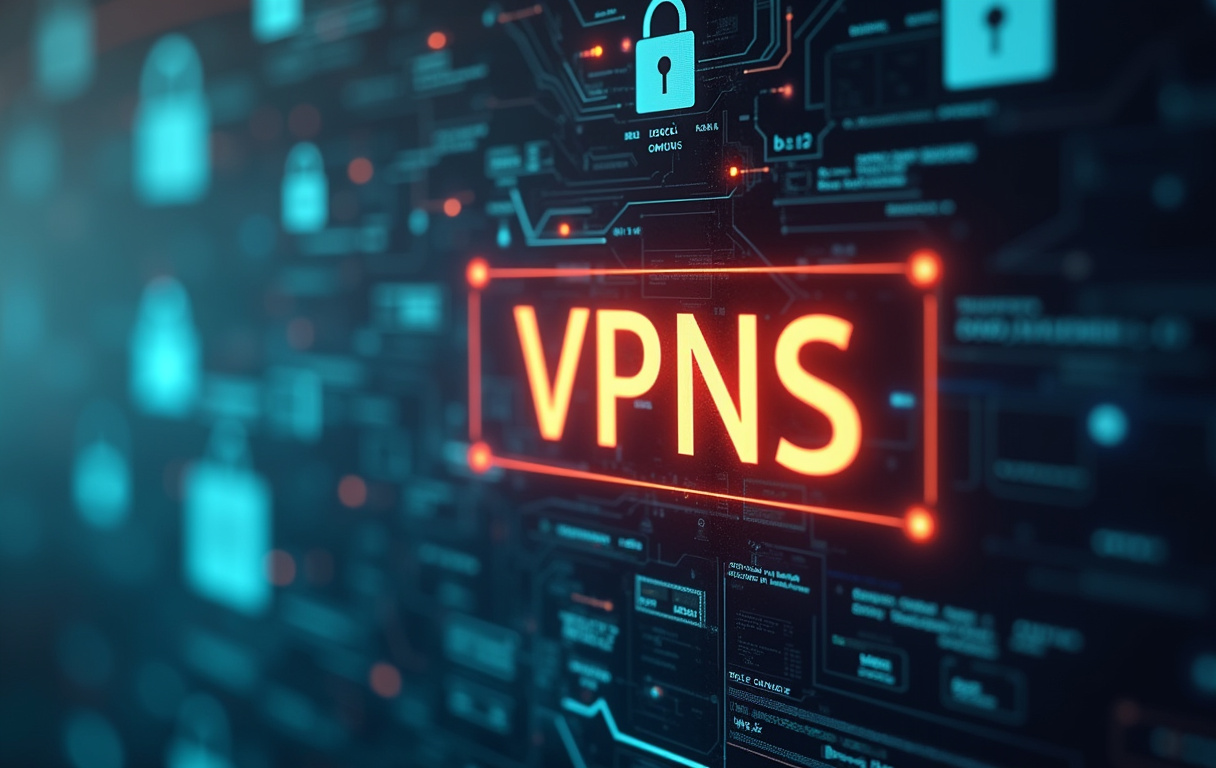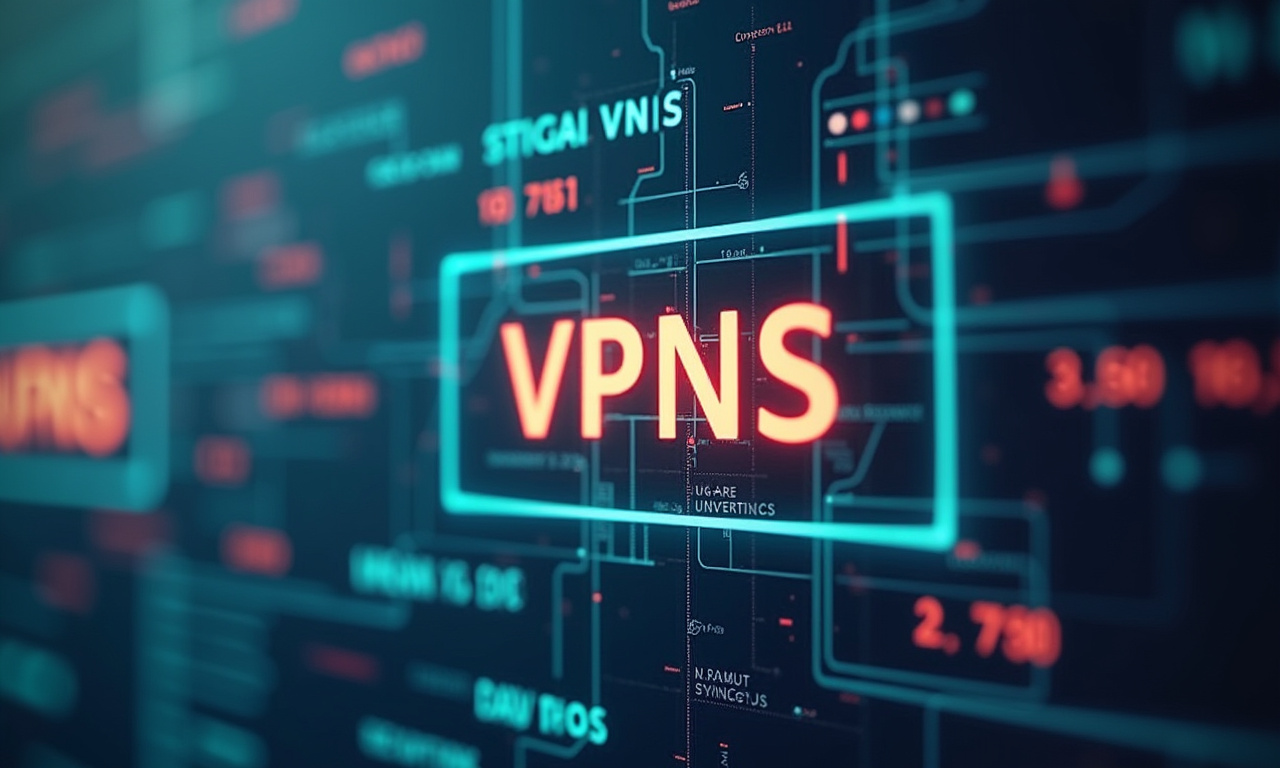VPNs for Maritime Shipping: Securing Vessel Communications
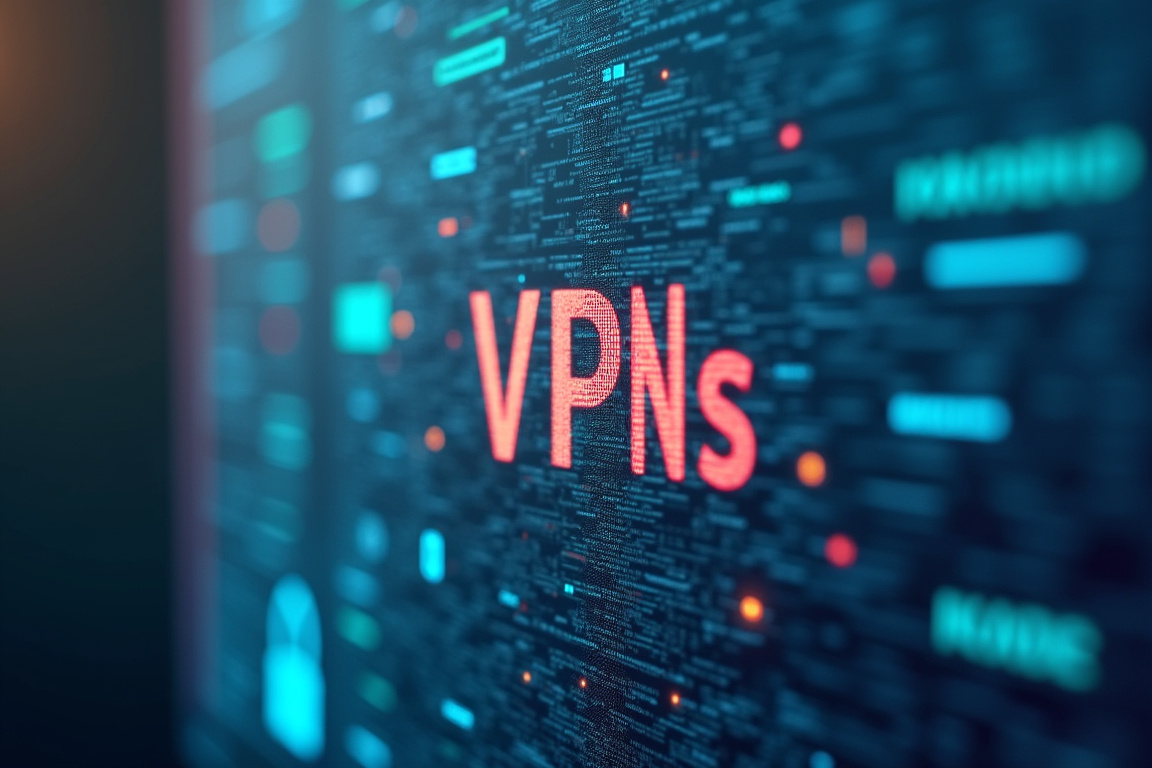
Table of Contents
The Growing Need for Secure Maritime Communications
The maritime industry, a vital artery of global commerce, stands at a digital crossroads. Its increasing reliance on interconnected systems, from navigational tools to logistical networks, has unlocked unprecedented efficiencies. However, this technological leap also introduces a critical vulnerability: cybersecurity.
The vast oceans, previously a natural barrier, now offer no protection against digital threats. Vessels, often operating in remote locations with limited connectivity, become prime targets for cyberattacks, data interception, and communication breaches. In this environment, where ship safety, operational integrity, and adherence to stringent regulations are paramount, securing vessel communications is no longer optional; it is a fundamental necessity.
This is where maritime VPN (Virtual Private Network) technology steps onto the stage, offering a robust and increasingly indispensable solution. A maritime VPN is more than just a piece of software; it's a strategic investment in the security and resilience of maritime operations. It provides a secure, encrypted tunnel for data transmission, effectively shielding sensitive information from prying eyes and malicious actors.
This encryption is critical for protecting a wide range of communications, including navigational data, cargo manifests, crew communications, and proprietary operational details. Without a VPN, this data is transmitted in a vulnerable, unencrypted format, making it easy for hackers to intercept and exploit. The potential consequences of such breaches are severe, ranging from financial losses and reputational damage to compromised ship safety and environmental disasters.
Imagine a scenario where a hacker intercepts navigational data and feeds false information into a vessel's navigation system. This could lead to grounding, collisions, or other catastrophic incidents. Or consider the impact of a data breach that exposes cargo manifests to competitors or criminal organizations.
This could lead to theft, fraud, or even the use of vessels for illicit activities. The risks are real and the stakes are high. Furthermore, the maritime industry is subject to increasingly stringent cybersecurity regulations and guidelines, such as those issued by the International Maritime Organization (IMO).
These regulations require vessel operators to implement robust security measures to protect their systems and data from cyber threats. Failure to comply with these regulations can result in fines, penalties, and even the detention of vessels. A maritime VPN is a key tool for achieving and maintaining compliance with these regulations, demonstrating a commitment to best practices in cybersecurity.
The adoption of maritime VPN solutions is not a simple plug-and-play process. It requires careful planning, implementation, and ongoing monitoring. Vessel operators need to assess their specific security needs, select a VPN solution that meets those needs, and configure the VPN settings for optimal performance.
They also need to train their crew members on the proper use of the VPN and establish clear security protocols. However, the benefits of enhanced vessel communication security, improved marine data protection, and overall ship safety far outweigh the challenges. As the maritime industry continues to embrace digital technologies, the importance of maritime VPNs will only continue to grow.
They are an essential component of a comprehensive cybersecurity strategy, providing a critical defense against the ever-evolving threat landscape. By investing in maritime VPN technology, vessel operators can protect their assets, safeguard their operations, and ensure the safety of their crew and the environment. In essence, a maritime VPN is not just a technology; it's an investment in the future of secure and resilient maritime operations.
It's a proactive step towards mitigating risk, enhancing efficiency, and ensuring the continued flow of global commerce in an increasingly interconnected world. And it is a symbol of commitment to Ship Safety beyond all else.
Understanding VPNs and Their Role in Maritime Security
The core functionality of a VPN hinges on establishing a secure, encrypted connection – often visualized as a tunnel – between a vessel and a shore-based server, or even between different vessels within a fleet. This encrypted tunnel is the cornerstone of vessel communication security, acting as an impenetrable barrier that safeguards data as it traverses potentially vulnerable public networks. Satellite internet connections, a ubiquitous feature of modern maritime operations due to their extensive global coverage, inherently lack the intrinsic security of private networks.
Without the protective embrace of a VPN, data transmitted via satellite remains vulnerable to interception, eavesdropping, and manipulation by malicious actors lurking in the digital shadows. This vulnerability extends to all forms of digital maritime communication, from routine email correspondence and critical navigational updates to sensitive cargo manifests and real-time voice over IP (VoIP) communications. At the heart of this security mechanism lies the robust application of sophisticated encryption algorithms.
The Advanced Encryption Standard (AES), for instance, serves as a workhorse, meticulously scrambling data into an unreadable cipher. This encryption process ensures that even if unauthorized individuals manage to intercept the data stream, they find themselves confronted with a jumble of unintelligible characters, effectively neutralizing their attempts at data theft or manipulation. The confidentiality, integrity, and authenticity of marine data are thus preserved, fostering a secure environment for critical maritime operations.
Beyond mere encryption, VPNs incorporate stringent authentication mechanisms, verifying the identities of users and devices seeking access to the network. Multifactor authentication (MFA), a particularly potent security measure, fortifies this process by demanding users furnish multiple forms of identification, such as a password combined with a time-sensitive code generated by a mobile app or a physical security token. This layered approach significantly diminishes the risk of unauthorized access stemming from compromised passwords or stolen credentials, ensuring that only legitimate users can access sensitive vessel communication channels.
Furthermore, maritime VPN solutions often incorporate advanced and often overlooked features, such as integrated "kill switches" and meticulous DNS leak protection, to maintain and enhance ship safety systems protocols and data. A kill switch functions as a fail-safe mechanism, instantly severing the internet connection should the VPN connection falter unexpectedly. This action is triggered in such event in order to prevent any data from inadvertently transmitting in an unencrypted format when not safe..Complementing this, DNS leak protection acts as a shield against potential DNS leaks, preventing the operating system from relying on default DNS servers that could inadvertently reveal the user's IP address and browsing activity.
These combined features constitute a formidable defense against a range of potential threats, bolstering the overall resilience of the maritime VPN and fortifying vessel communication security. Selecting the appropriate VPN protocol is a lynchpin decision in the deployment of a watertight maritime VPN system. VPN protocols differ significantly in their security strengths, bandwidth efficiency, and compatibility with different network devices and operating systems.
Popular choices include OpenVPN, prized for its robust security and extensive support across numerous platforms; IPsec, favored in enterprise settings for its security features and interoperability; and WireGuard, a relative newcomer recognized for its high performance and modern cryptography. The optimal choice depends on the vessel's unique application and the overarching security goals of the business, particularly around levels of vessel communication security. It is essential to note that proper selection extends beyond an initial installation.
Constant and consistent monitoring of VPN protocols is an equally important task. Through consistent monitoring of VPN protocols, vessels can protect themselves from potential threats that would otherwise put their ships at risk.
Implementing VPNs for Enhanced Vessel and Shore-Side Security
Beyond the immediate and tangible security benefits, the strategic implementation of maritime VPNs contributes significantly to cultivating a more robust, resilient, and trustworthy maritime ecosystem. By effectively safeguarding vessel communications and diligently protecting sensitive marine data, VPNs actively mitigate the potential for costly data breaches, prevent disruptive cyberattacks, and bolster overall compliance with evolving regulatory requirements. This proactive approach not only minimizes risks but also fosters a climate of trust and confidence among stakeholders, ranging from ship operators and cargo owners to insurers and regulatory bodies The potential financial ramifications of a successful cyberattack on a maritime vessel can be staggering.
Beyond the immediate costs associated with system recovery, data restoration, and incident response, businesses may face significant financial losses due to operational disruptions, reputational damage, and legal liabilities. A single data breach can expose sensitive customer data, proprietary trade secrets, or confidential financial information, leading to lawsuits, regulatory fines, and a loss of competitive advantage. By investing in maritime VPNs, vessel operators can significantly reduce their exposure to these financial risks, protecting their bottom line and ensuring the long-term financial health of their organizations.
Moreover, beyond the tangible financial benefits, the adoption of robust VPN solutions fosters a culture of cyber awareness and security consciousness throughout the maritime organization. By prioritizing data protection and investing in employee training, companies can empower their workforce to become active participants in the overall security effort. Employees who understand the importance of cybersecurity are more likely to recognize and report suspicious activity, follow security protocols, and avoid falling victim to phishing scams or social engineering attacks.
This collective commitment to security creates a formidable defense against cyber threats, reducing the likelihood of successful attacks and minimizing their potential impact. From a compliance standpoint, the maritime industry is increasingly subject to a complex web of regulations and guidelines aimed at enhancing cybersecurity and data protection. International bodies such as the IMO have issued comprehensive cybersecurity guidelines, while regional and national authorities are enacting stricter data privacy laws.
Failure to comply with these regulations can result in hefty fines, sanctions, and even the revocation of operating licenses. Maritime VPNs serve as a valuable tool for achieving and maintaining compliance with these evolving regulatory requirements. By encrypting data in transit, authenticating users, and implementing advanced security features, VPNs help vessel operators demonstrate their commitment to data protection and cybersecurity best practices.
This proactive approach not only minimizes the risk of regulatory penalties but also enhances the company's reputation and strengthens its relationships with key stakeholders. Furthermore, the enhanced security provided by maritime VPNs can facilitate more efficient and secure collaboration among different entities within the maritime ecosystem. Secure data sharing is essential for streamlining logistics, optimizing supply chains, and improving overall operational efficiency.
VPNs enable vessel operators to securely share information with cargo owners, port authorities, customs officials, and other stakeholders, without the risk of data interception or unauthorized access. This seamless and secure exchange of information can lead to faster turnaround times, reduced costs, and improved overall performance. The ability to communicate and collaborate securely is particularly important in emergency situations, such as maritime accidents or security threats.
VPNs provide a secure channel for coordinating emergency response efforts, sharing critical information, and ensuring the safety of crew members and vessels. By enabling secure communication in challenging circumstances, VPNs contribute to a more resilient and responsive maritime industry. Furthermore, consistent use of VPNs for maritime operations help to maintain consumer trust in a brand or maritime organisation.
Through such security measures, they can maintain a strong reputation with their partner carriers and customers.
Maintaining a Secure VPN Infrastructure: Logging, Audits and Compliance
The selection and deployment of a suitable maritime VPN solution necessitate a meticulous evaluation of the specific operational context, technical infrastructure, and budgetary constraints of each individual vessel or fleet. A one-size-fits-all approach is rarely effective, as the optimal VPN solution will vary depending on factors such as the size of the vessel, the number of crew members, the type of cargo being transported, the geographical areas of operation, and the level of sensitivity of the data being transmitted. Conducting a thorough risk assessment is a crucial first step in the selection process.
This assessment should identify the potential cybersecurity threats facing the vessel, evaluate the existing security measures, and determine the level of risk that the organization is willing to accept. The risk assessment should also consider regulatory requirements and industry best practices related to cybersecurity and data protection. Based on the risk assessment, vessel operators can define their specific security requirements and identify the features and functionalities that are essential for their maritime VPN solution.
These requirements may include the level of encryption, the types of VPN protocols supported, the availability of kill switch and DNS leak protection, the number of concurrent connections allowed, the speed and reliability of the VPN servers, and the level of customer support provided. It is essential to prioritize features that directly address the identified cybersecurity risks and align with the organization's overall security objectives. Compatibility with existing maritime communication systems is another critical consideration.
Many vessels rely on a diverse range of communication systems, including satellite internet connections, radio communications, and proprietary vessel management systems. The maritime VPN solution must be compatible with these existing systems to ensure seamless integration and avoid disruption to critical operations. Thorough testing and evaluation are essential to verify compatibility and identify any potential conflicts.
Vessel operators should also consider the impact of the VPN on network performance. VPNs can introduce overhead, reducing bandwidth and increasing latency. In the maritime environment, where bandwidth is often limited and expensive, it is crucial to select a VPN solution that minimizes performance degradation.
Choosing a VPN provider with strategically located servers, optimized VPN protocols, and efficient data compression techniques can help to mitigate these performance issues. Furthermore, the maritime VPN solution should be easy to manage and maintain. Vessel operators often have limited IT resources and may lack specialized cybersecurity expertise.
The VPN solution should provide a user-friendly interface, comprehensive documentation, and reliable customer support. Remote management capabilities are also essential, allowing IT staff to monitor and manage the VPN solution from anywhere with an internet connection. Cost is, of course, always a factor.
While it is important to consider the upfront cost of the maritime VPN solution, vessel operators should also factor in the long-term costs of maintenance, support, and potential security breaches. A seemingly inexpensive VPN solution may ultimately prove to be more costly if it lacks essential security features or requires frequent maintenance. Investing in a reputable and reliable VPN provider with a proven track record in the maritime industry is often the most cost-effective approach in the long run.
Finally, vessel operators should prioritize transparency and accountability when selecting a maritime VPN provider. The provider should be transparent about their data collection practices, security policies, and incident response procedures. They should also be willing to enter into a service level agreement (SLA) that guarantees a certain level of performance, security, and availability.
Choosing a VPN provider with a strong reputation for integrity and trustworthiness is essential for ensuring the long-term security and reliability of the maritime VPN solution.
The long-term success of any maritime VPN deployment hinges not solely on the technical prowess of the chosen solution, but also, and perhaps more critically, on the cultivation of a robust security culture and the continuous training of crew members. Technological safeguards alone are insufficient to defend against the ever-evolving landscape of cyber threats; human vigilance and awareness form an indispensable layer of protection. Crew members, as the front line of defense, must be equipped with the knowledge and skills necessary to recognize, respond to, and mitigate potential security risks.
Regular and comprehensive training programs are essential for ensuring that crew members understand the importance of cybersecurity, are familiar with the organization's security policies and procedures, and are proficient in the use of the maritime VPN solution. Training should cover a wide range of topics, including password security, phishing awareness, malware prevention, social engineering, and incident reporting. Practical exercises and simulations can help crew members to develop their skills and build confidence in their ability to respond effectively to real-world security threats.
Furthermore, training should be tailored to the specific roles and responsibilities of different crew members. For example, officers responsible for navigational systems should receive specialized training on the security of electronic charts and other critical navigational data. Engineers responsible for vessel management systems should receive training on the security of industrial control systems and the prevention of unauthorized access.
Ongoing awareness campaigns are also crucial for keeping cybersecurity top of mind among crew members. These campaigns can utilize a variety of methods, including posters, newsletters, emails, and short videos, to reinforce key security messages and highlight emerging threats. The campaigns should be engaging, informative, and relevant to the daily lives of crew members.
Regular security audits and vulnerability assessments can help to identify weaknesses in the organization's security posture and provide valuable insights for improving training programs and awareness campaigns. These assessments should be conducted by qualified cybersecurity professionals and should cover all aspects of the organization's IT infrastructure, including the maritime VPN solution. The results of the assessments should be shared with crew members and used to inform ongoing security improvements.
In addition to training and awareness, it is also important to establish clear security policies and procedures. These policies should outline the responsibilities of crew members, provide guidance on how to handle sensitive data, and describe the steps to take in the event of a security incident. The policies should be readily accessible to all crew members and should be regularly reviewed and updated to reflect changes in the threat landscape.
Incident response planning is another essential component of a comprehensive maritime security strategy. A well-defined incident response plan outlines the steps to take in the event of a security breach, ensuring that the organization can respond quickly and effectively to minimize the damage. The plan should identify key personnel, define communication channels, and describe the procedures for containing the incident, eradicating the threat, and recovering affected systems.
Regular testing and rehearsal of the incident response plan are crucial for ensuring its effectiveness. Creating a culture of open communication and collaboration is also essential for fostering a strong security posture. Crew members should feel comfortable reporting suspicious activity or security concerns without fear of reprisal.
The organization should establish clear channels for reporting incidents and should provide prompt feedback to crew members who report security issues. By fostering a culture of trust and transparency, the organization can encourage crew members to become active participants in the overall security effort. Ultimately, the most effective maritime security strategy is one that combines technological safeguards with human awareness and vigilance.
By investing in robust VPN solutions, comprehensive training programs, and a culture of security consciousness, vessel operators can significantly reduce their exposure to cyber threats and ensure the safety and security of their vessels, crew, and cargo. The digital frontier in maritime operations demands a proactive and holistic approach to vessel communication security, where technology and human expertise work in concert to navigate the challenges and protect this critical sector of global commerce.
Stay Updated
Get the latest VPN news, tips, and exclusive deals to your inbox.
